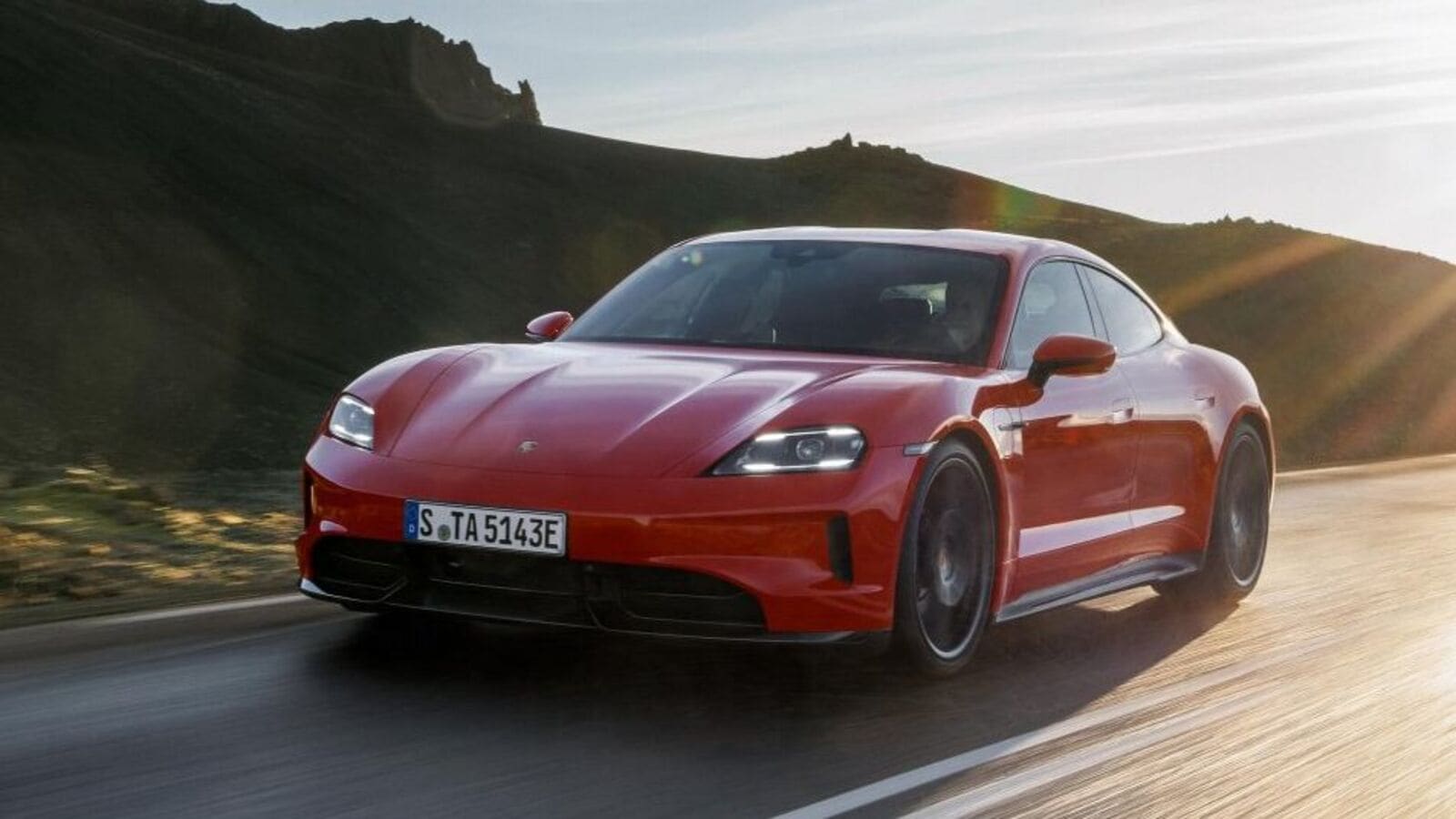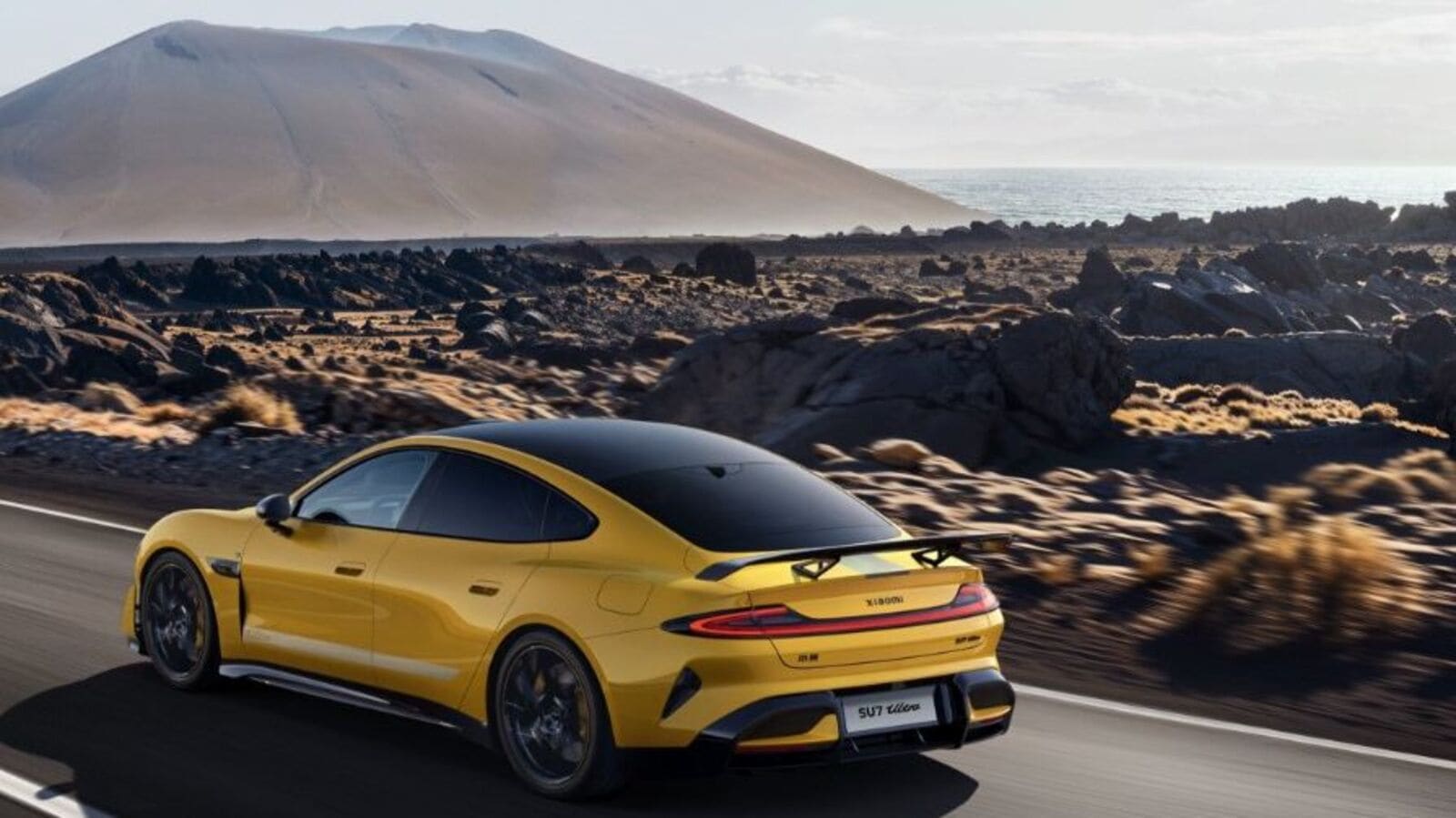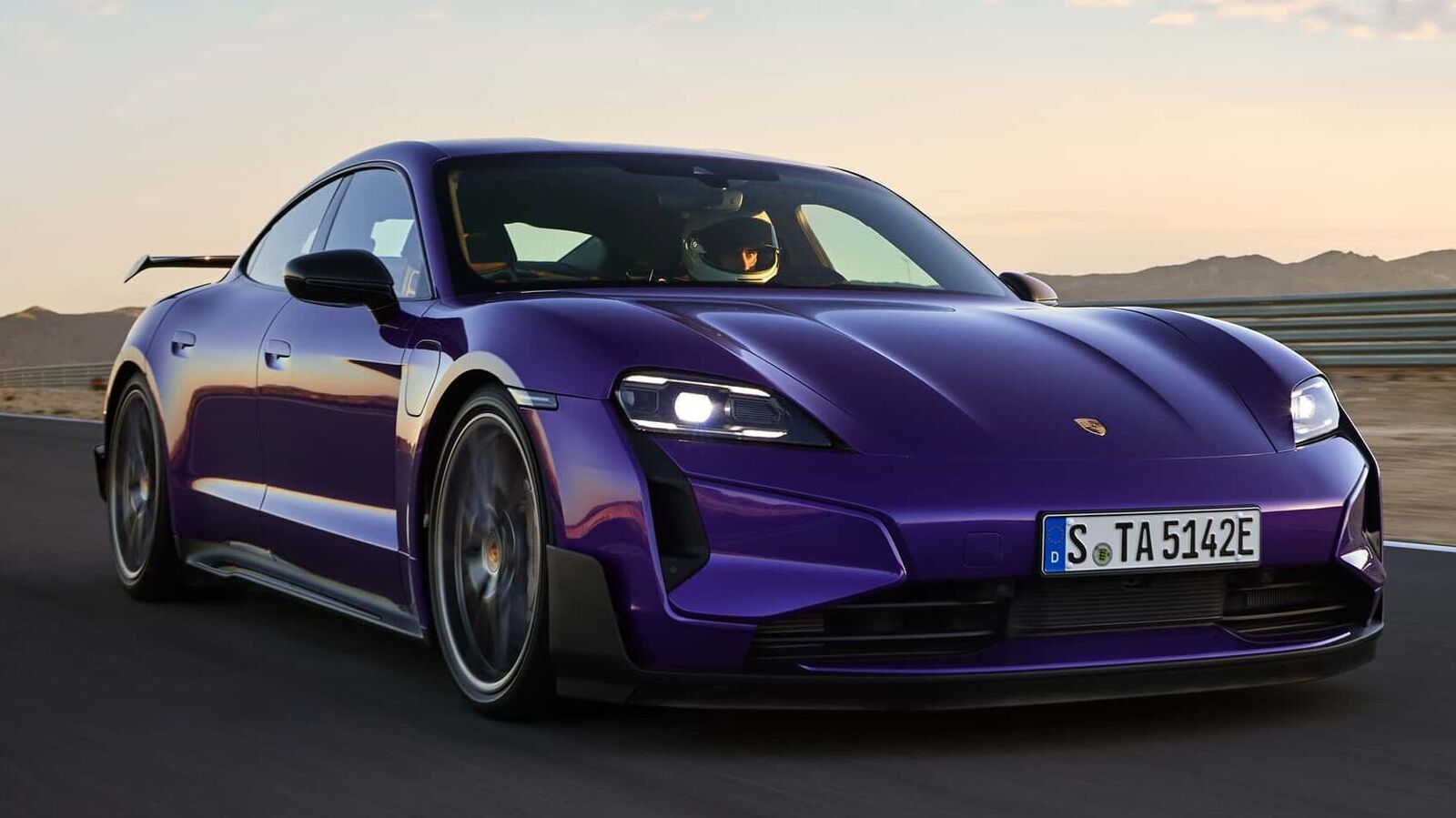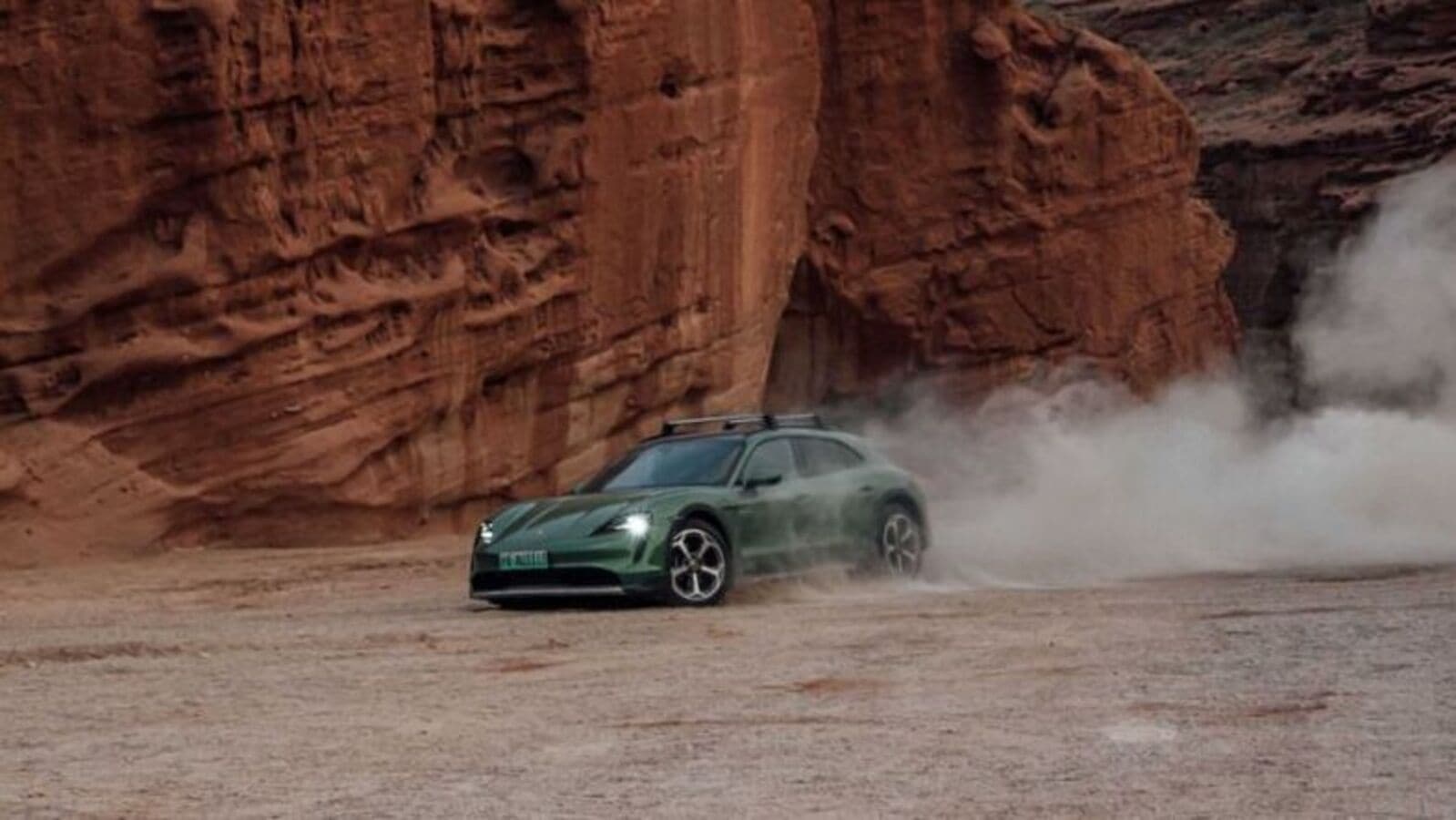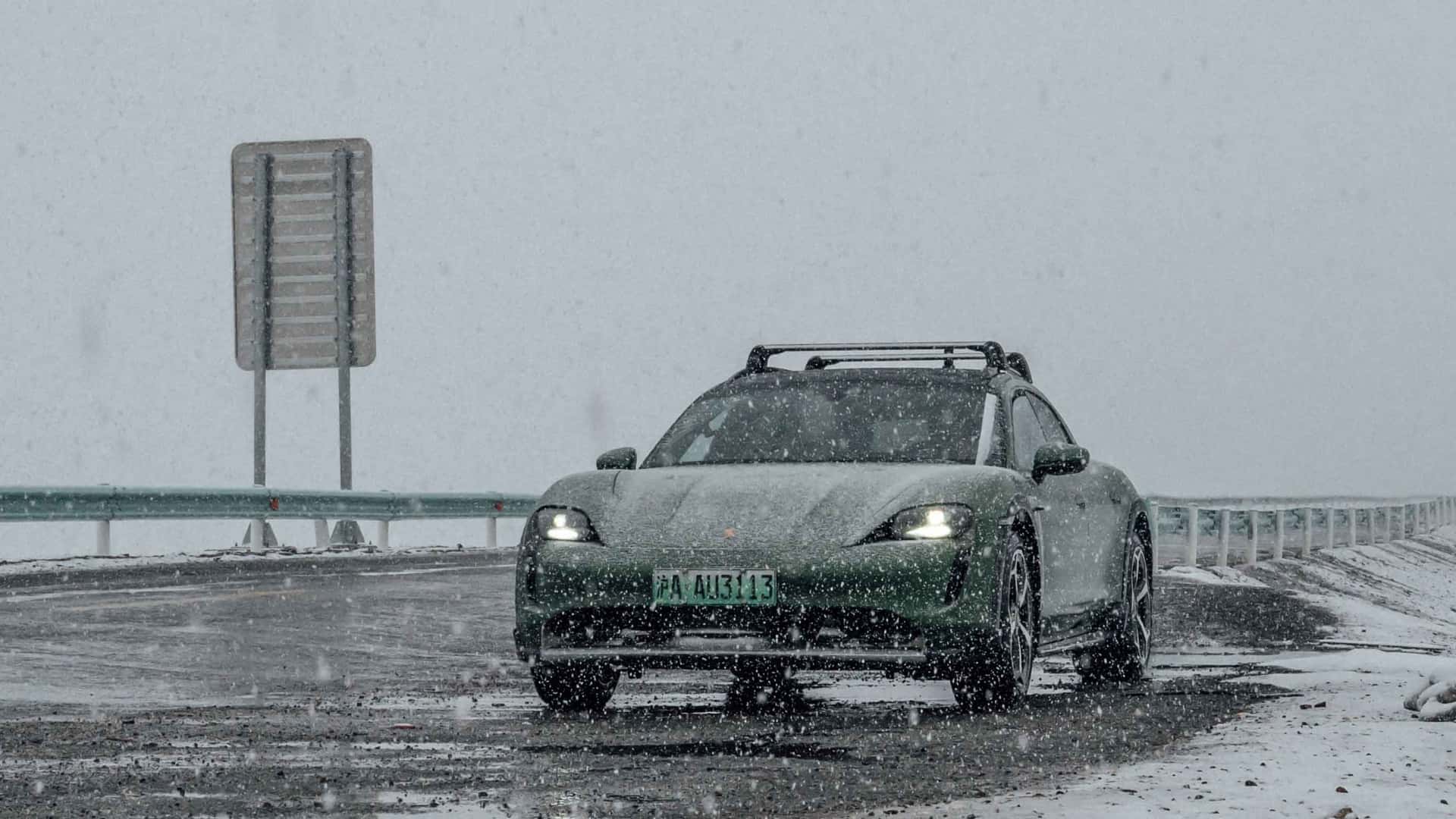- The Porsche Taycan is the brand's first electric car, which is also on sale in India.
The Porsche Taycan is one of the most interesting electric luxury cars in India. Porsche India has issued a voluntary recall for the Taycan EV in the country. More than 176 units of the Porsche Taycan electric sedan have been recalled by the German performance carmaker due to a possible defect in the battery cells or modules.
Porsche Taycan EVs manufactured between October 21, 2019 and March 4, 2024 are the potentially affected electric cars that the auto company has recalled. Porsche has discovered that Taycan EVs produced in the above period may have a faulty battery module supplier system. This fault may result in a short circuit within the battery module and may even result in a fire in the electric vehicle following thermal throttling.
Also Read: Upcoming Cars in India
The latest recall for the Porsche Taycan EV comes as part of a larger recall for the electric car spanning global markets. Globally, more than 27,500 units of the Porsche Taycan EV have been recalled in October, which were built between the above periods. A recall was issued in the international market in October 2024. The recall was issued in conjunction with sister brands' Audi's recall involving the Audi e-tron GT and Audi RS e-tron GT models, produced from 2022 to 2024. Audi electric cars have been recalled due to a battery problem that could result in fire.
Porsche Taycan EV: This is not the first recall
This is not the first time that the Porsche Taycan EV has faced problems. Earlier, in June this year, the carmaker had recalled every single Taycan globally due to possible brake failure. The automaker said the affected Taycan EV will display a warning light on the dashboard. The carmaker did not disclose the exact number of Taycan EVs affected by the recall at the time, but the recall affected more than 150,000 units of the EV worldwide. The automaker said there was an issue related to the front brake hoses, with a small number of Taycan EVs developing cracks that could cause brake fluid to leak, reducing brake pressure and system effectiveness.
Check out Upcoming EV Cars in India, Upcoming EV Bikes in India.
First publication date: 15 Dec 2024, 10:28 am IST

